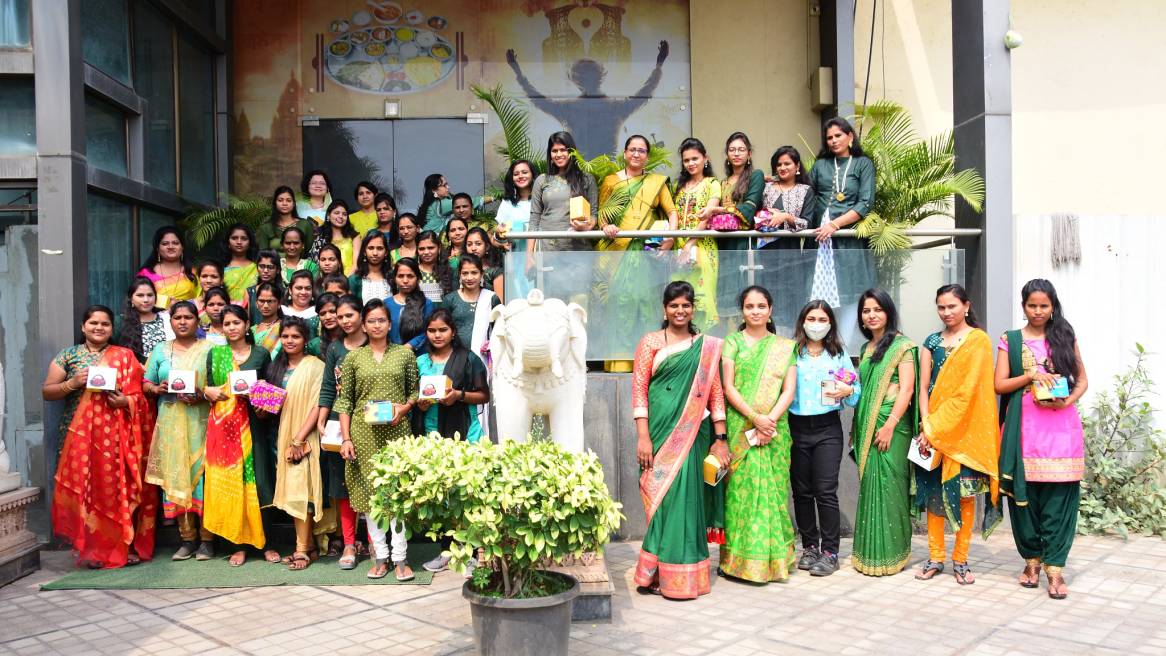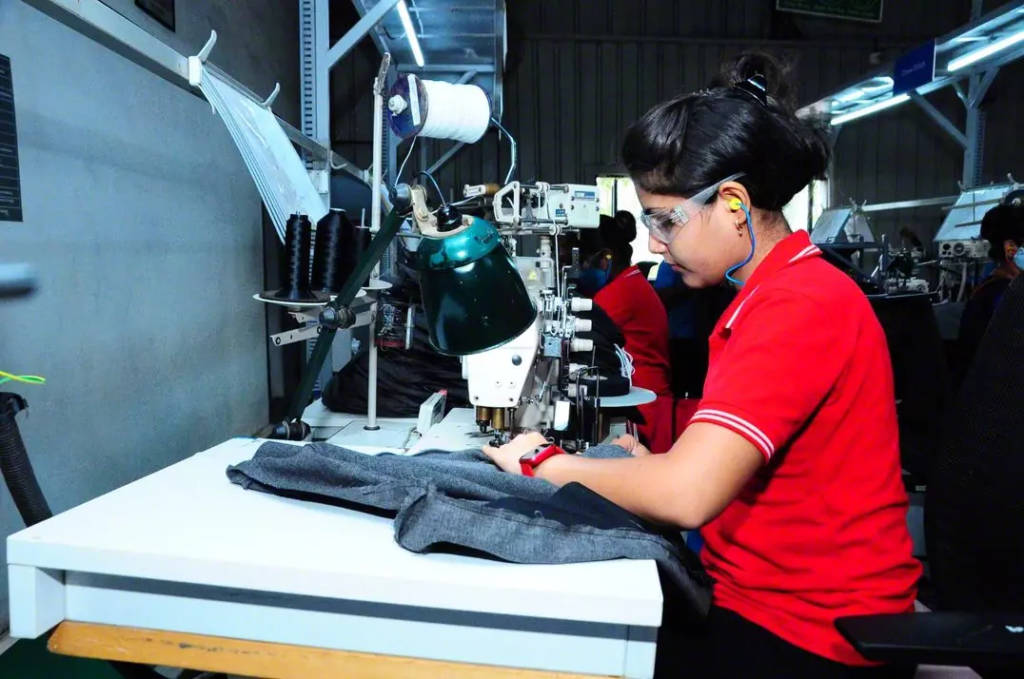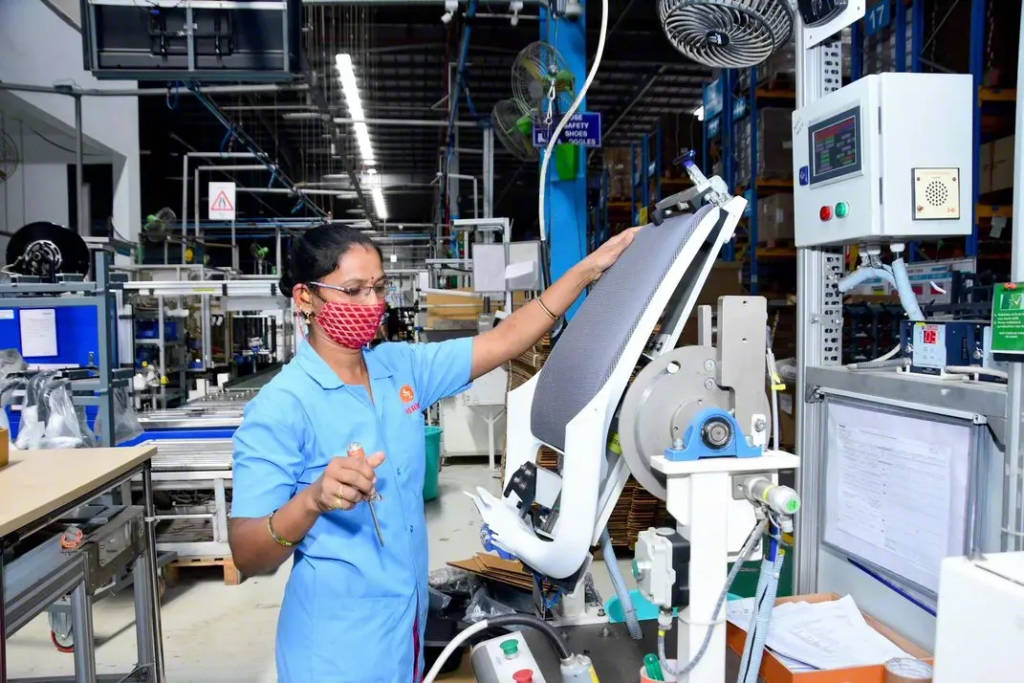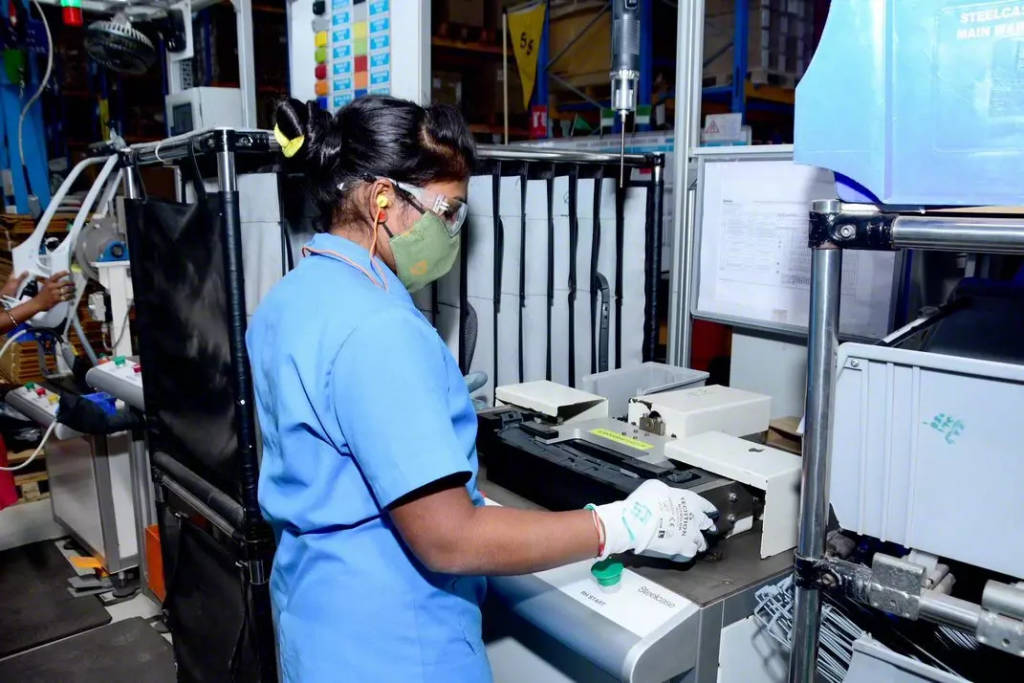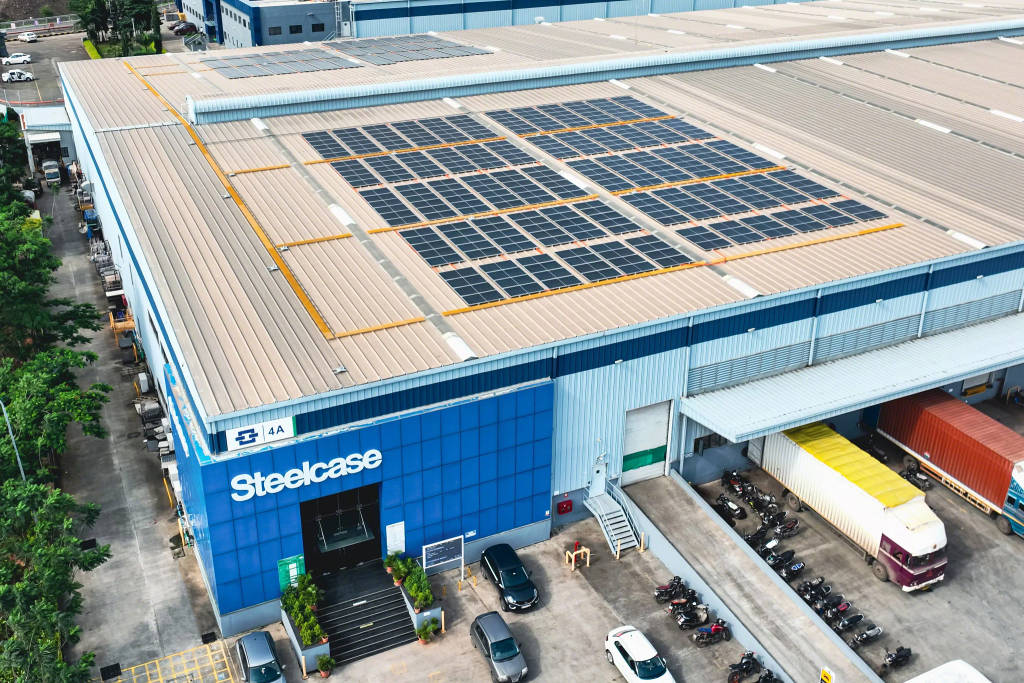Women of Steel: Breaking Bias, Building a Movement
What Pune, India manufacturing leaders learned while developing an all-woman team.
For Ashwini Wadekar, a new manufacturing job at the Steelcase Plant in Pune, India means a different kind of life for her and her family. Wadekar is now able to earn a living for herself – and something else just as important. “Steelcase made me an example for my daughter,” Wadekar said.
Roshni Pawar’s thoughts also go to her family. “Not only am I able to earn, but I am able to save for a future for my kids,” Pawar said.
It’s a new career opportunity that’s important for Poonam Jadhav – a newfound confidence that she can be a leader. “I was selected as a Zone leader on the shop floor, and I was told that I am the best person for the job,” Jadhav said. “The job which everyone, including I, thought could only be done by a man.”
All three are members of the Women of Steel – a group of women working at the Pune plant who are now changing the face of manufacturing in a country where very few women work in factories. The effort has led to the Steelcase Series 1 sustainable office chair being made entirely by women in Pune, with another all-women line set to open soon. Beyond jobs, however, Women of Steel has removed barriers to opportunity, offering safety, security, education, training, support and wellbeing services for dozens of women and their families across the region.
In India, where the Pune plant is located, innumerable cultural norms and biases – coupled with perceptions that manufacturing is labor-intensive, dirty, and difficult – has led to critically low numbers of women in manufacturing. Prior to Women of Steel, only about 10% of employees at the Pune plant were women – a number even lower than India’s national average of 12% women in manufacturing. A lack of access to quality jobs acts as a barrier for women to achieve independence, income growth and career advancement. After intentional efforts, the workforce in the Pune plant is now 60% women.
The Pune team says they were inspired by the many global achievements of women in recent years, such as the election of Kamala Harris as the first female U.S. Vice President, and the appointment of Citigroup’s Jane Fraser as the first big Wall Street bank CEO. However, they began to realize that moment wasn’t materializing within shop walls – and that their workforce didn’t reflect the community around it. Women leaders at the plant like Gaurav Thakur and Priti Patil knew the kind of equity and diversity that Steelcase strives for couldn’t be attained without intentional action. That’s when the Pune team began to conceptualize the idea of Women of Steel – to truly transform the plant with the hopes of sending ripples across India.
We did this because we believe that diversity and inclusion isn’t just the right thing to do, it’s the way to do things right.
Gaurav ThakurHead of Human Resources, Steelcase
“That’s why we are encouraged to explore what makes each one of us unique and empowers us to work together to make people’s lives and the world a better place,” Thakur added.
For fellow HR manager Priti Patil, wanting to make the change was easy – execution was more difficult.
“Yes, we wish that other organizations would take these kinds of steps – using the correct attitude and actions, because we see you can win with diversity,” Patil said. “But you really need to get into the mindset that you must do it, you must commit to it, and get out of preconceived notions. In our case, just bringing women in wasn’t enough – we needed to sustain them, understand them, and include them to make this successful long term.”
Making a Change
To facilitate change, Steelcase plant leaders devised the three A’s: having the right attitude, appropriate accommodations and actions – an effort they continue to use to sustain the program.
Attitude – Hiring teams hold ‘break the bias’ sessions to help managers and those in the community reorient their understanding of the type of work being done – and that it is done successfully by women. It is important for everyone to understand modern manufacturing, like that being done at the Pune plant, is highly skilled and technical. The right attitudes for change include constant self-evaluation, peer influence, and creating male “allies” who help check others when gender biases are mentioned.
“Getting everyone to buy into this agenda – to help us make this change, was very important,” Thakur said, adding that male plant leaders and zone members are instrumental in the success of the program.
Accommodations – To support women who are new to the workforce, Pune leaders offer flexibility, education, and training. Flexibility includes evaluating options like job share and benefits for childcare and arrangements made for women post-maternity leave. Operators are given extensive jobsite training to develop needed skills. Support transcends shop walls – in the form of transportation, hosting community blood drives, and an educational program for girls in the community.
Action
The final step is the most important – ensuring the Series 1 line remains an all-woman operation and maintaining momentum in hiring women into other roles. Plant leaders conduct blind interviews and work with outside vendors who can engage female workers. The plant seeks to broaden the goal of hiring women beyond the manufacturing lines to include all staff.
The Result
Productivity has dramatically increased, with the all-women team producing the best output on the Series 1 line – and they continually improve. The solution has led to higher retention rates and a firm foundation for women seeking leadership roles at the plant. Thakur says members of the all-women team also share their stories with Steelcase customers and partners with the hope of inspiring others to remove barriers to an inclusive workplace.
Truly Women of Steel
Thakur says Women of Steel is about elevating women’s voices and ideas in a supportive and productive environment – providing a safe place for women to talk about issues that matter most to them and engage in peer-to-peer support. Women of Steel has also exposed newer workers to women in leadership at the Pune plant, thereby fostering mentorships and opportunities for women to grow their careers.
“Celebrating women and their accomplishments is nothing new for us as a company. DEI permeates to our very core. It starts at the top of the house and spreads to the entire enterprise,” Thakur says.
The Women of Steel program is a recruitment initiative started by the Steelcase plant in Pune, India to attract more women to the workforce in a country where few women traditionally work in manufacturing. Watch the story.

